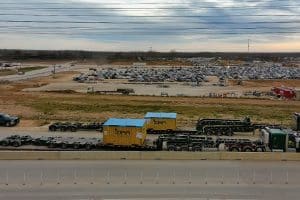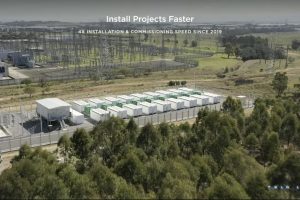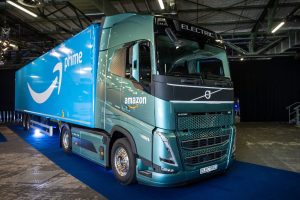Rivian may only be starting its initial production activities, but the company has already announced some of its ambitious goals for the end of the decade. As per CEO RJ Scaringe in an interview ahead of the company’s market debut on the Nasdaq, Rivian is planning to build at least one million vehicles annually by the end of 2030.
“We better be growing at least that quick; certainly before the end of the decade is how we think about it,” Scaringe said.
Rivian priced its initial public offering at $78 per share, which gave the electric truck maker a valuation of over $77 billion. As of writing, however, Rivian’s stock has soared 60%, with the company trading up to $122 per share. That’s equal to a valuation of about $104 billion, larger than veterans in the auto sector such as Ford Motor Company and General Motors, whose market caps stand at $79.21 billion and $87.01 billion as of writing.
So far, Rivian has a working electric vehicle plant in Normal, Illinois, though the company has announced its intentions to launch a second US factory in the future. Production facilities in Europe and China are also planned, though no specifics about the upcoming factories have been shared so far.
Rivian’s Illinois plant has an annual capacity of 150,000 vehicles for now, though the company has stated that it intends to increase the factory’s output to 200,000 vehicles annually by 2023. And while the R1T and R1S are sold out into 2023 with over 55,000 orders, Scaringe has noted that things are just beginning.
“It really serves to open our brand umbrella, under which we can add a whole host of different products, different form factors, different segments, different price points, lower price points, and very much the same way we’re doing that with the commercial van space,” the Rivian CEO said.
Considering the company’s goal for its Illinois facility, one could assume that Rivian’s planned electric vehicle production facilities in the United States, Europe, and China would be more optimized and capable of larger outputs. This is quite similar to the strategy employed by fellow EV maker Tesla, whose Gigafactory Shanghai is more optimized than its Fremont Factory in California, which, like Rivian’s Illinois site, was only repurposed for premium EV production.
The coming years would likely be challenging for Rivian, especially as the company takes on the task of learning how to master the art of manufacturing vehicles at scale while keeping operations as efficient as possible. Considering the results of its IPO, as well as the overall sentiment in the electric vehicle sector, however, Rivian definitely seems to have the wind on its back, and in the grand scheme of things, that’s really good news for the auto sector and the sustainability movement as a whole.





